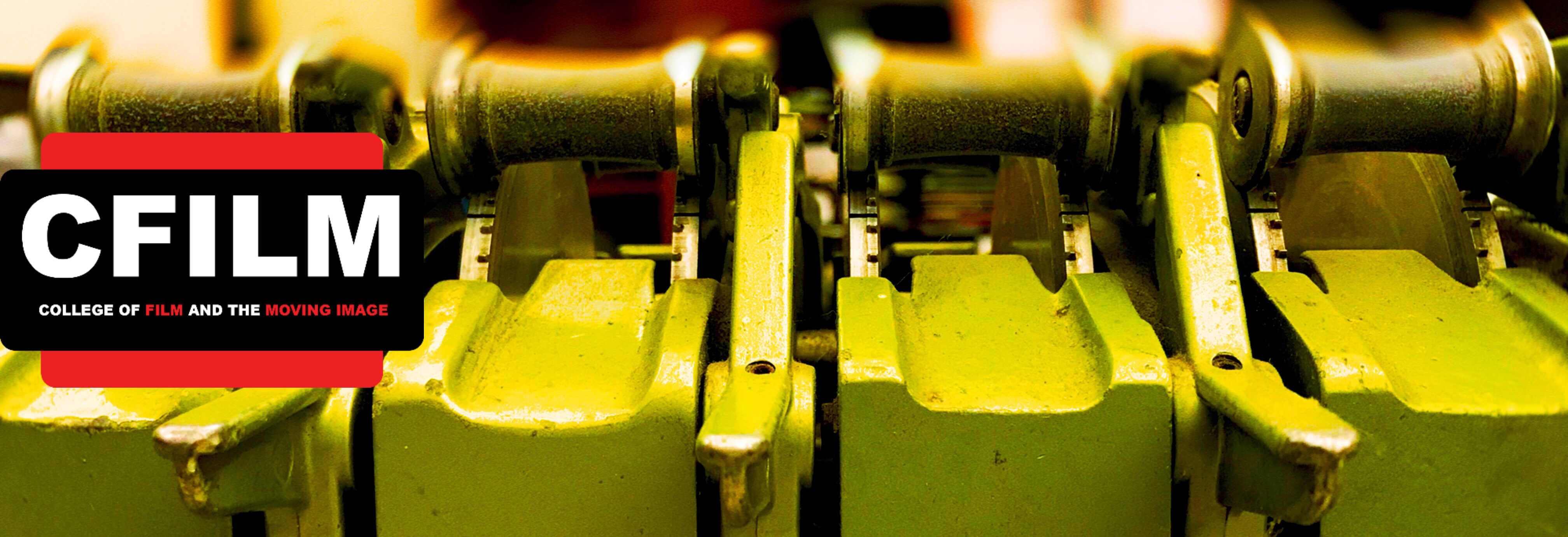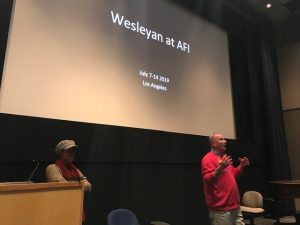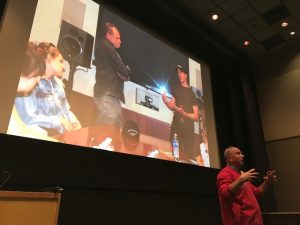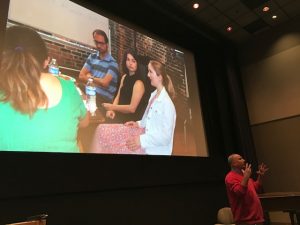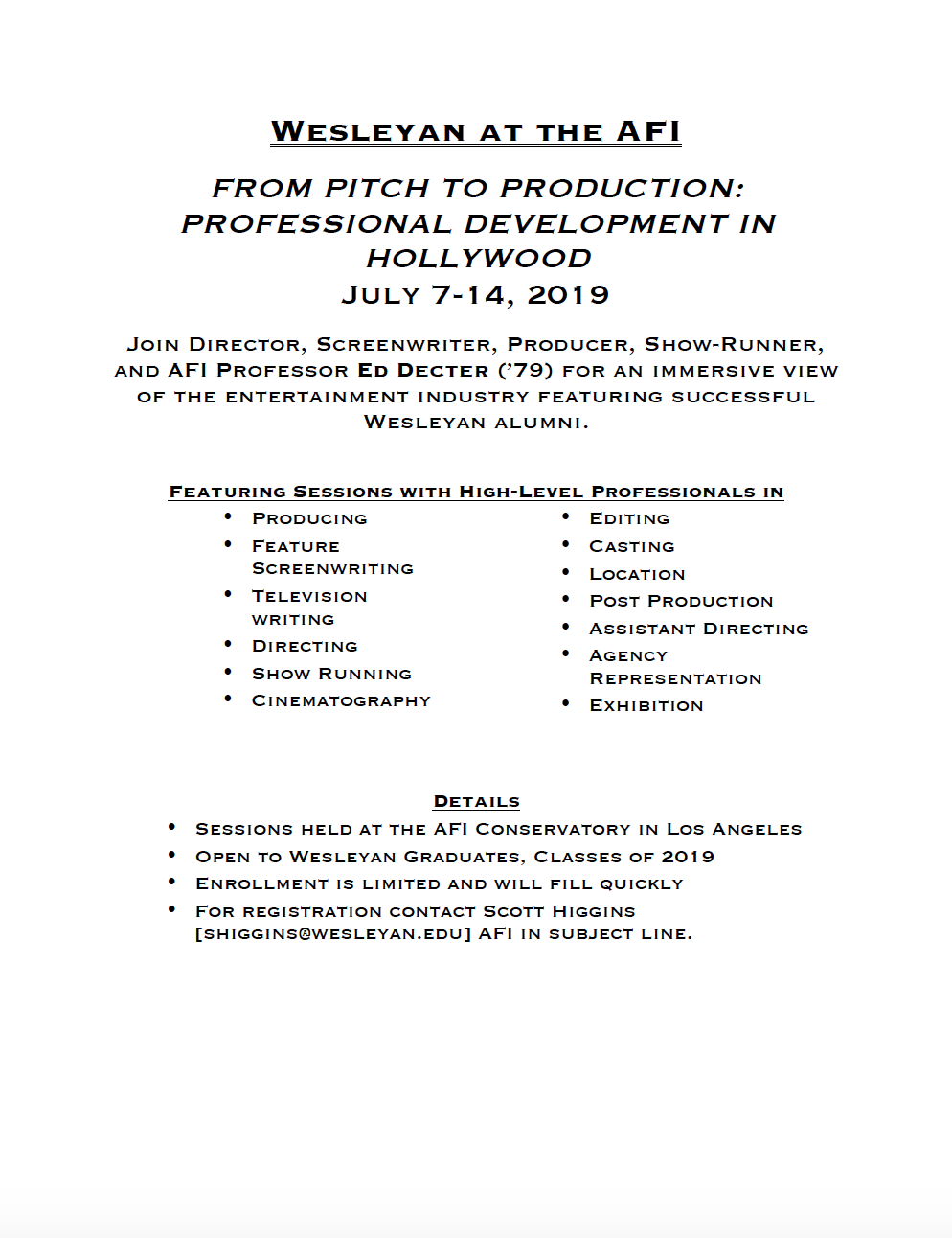Avengers Endgame opens this week!!!! That might not seem immediately pertinent to the CFILM BLOG, despite the importance of certain Wesleyan Alumni to earlier installments in the franchise, but trust me – it is a LEARNING MOMENT! This latest Marvel/Disney behemoth comes during the final weeks of the Cinema of Adventure and Action class where we have been thinking a lot about genre, cliffhangers and heroes. We began the class studying American serials of the sound era, starting from the book I wrote on the subject (which itself grew out of earlier versions of the class). These low-budget chapterplays were released to theaters once a week from the 1930s through the mid 1950s and, in many ways, they started trends that have recently come to dominate our action cinema. The films of the Marvel Cinematic Universe owe quite a lot to the humble serial tradition that first brought superhero comic-book adaptations to the screen.
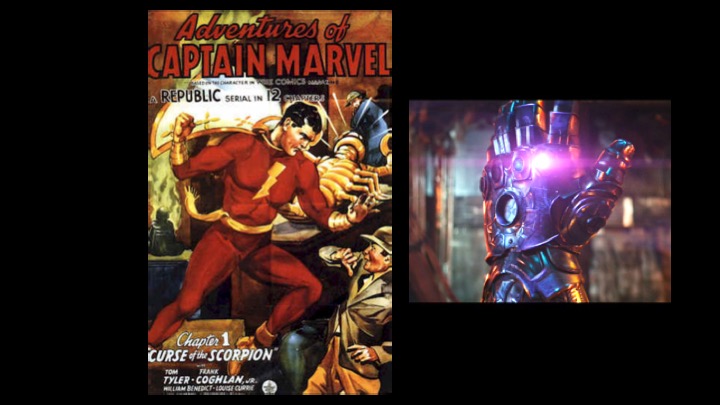
As the semester closes, we are particularly focused on Endgame because the previous installment, Avengers Infinity War, ended with a serial-style cliffhanger. Like an episode of Flash Gordon or Perils of Nyoka, the last Avengers movie concluded not with the heroes hanging from the edge of a cliff, but fully plummeting into the abyss. The movie left audiences not with the question of whether the heroes will win, but how they can possibly manage to come back to life, roll back time, and beat Thanos. These kinds of questions were essential to the sound serial, which left young viewers with problems to solve and to roles to play on playgrounds and in back yards during the week between chapters. Cliffhangers were lucrative model, helping to keep the story present in the daily lives of fans and, most important, encouraging paid attendance at next week’s show. Marvel is on the cusp of unprecedented box-office. Endgame will open on 4,600 screens in North America, has already sold out 4000 shows in advance, and is expected to rake in $850 million worldwide. For a historian, the remarkable thing is that this all hangs on a plot device that was refined 70 years ago in more-or-less forgotten formula films.
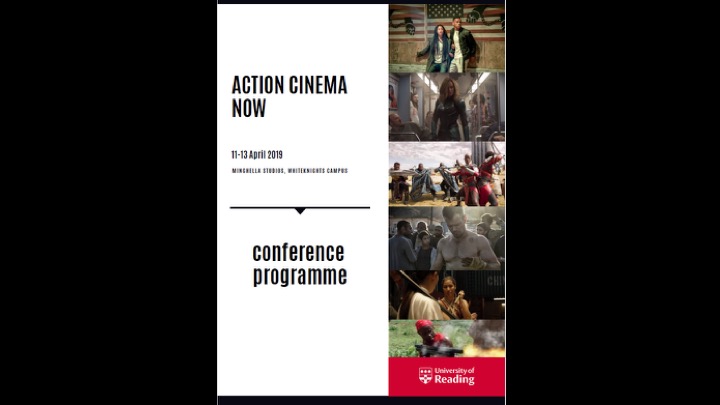
A few weeks ago, I presented an academic paper on serials and Marvel at the Action Cinema Now! Conference in Reading England. The boundaries between “serious scholarship” and teaching are wonderfully fluid at Wesleyan because our students are sharp, challenging, and inquisitive. Thanks to the members of the Cinema of Adventure and Action, I could step out of the classroom, into the conference room, and back into class without changing the conversation. CFILM faculty are lucky in this way.
In both the conference and the class, we’ve been pondering how films handle heroic failure, and what viewers can possibly get out of seeing everything go terribly wrong up on screen. Infinity War is a terrific test case, because the universe’s greatest heroes fail SO SPECTACULARLY! Last-minute actions all come to naught, and with the snap of his magic fingers Thanos extinguishes half of the living population in the multi-verse. Then, our heroes begin to fall. Their deaths are carefully ordered for maximum emotion. First Bucky Barnes and various Wakandans turn to dust, establishing the principle of disintegration.
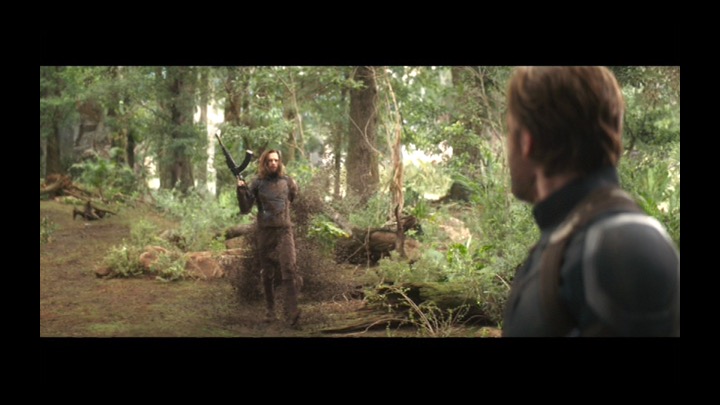
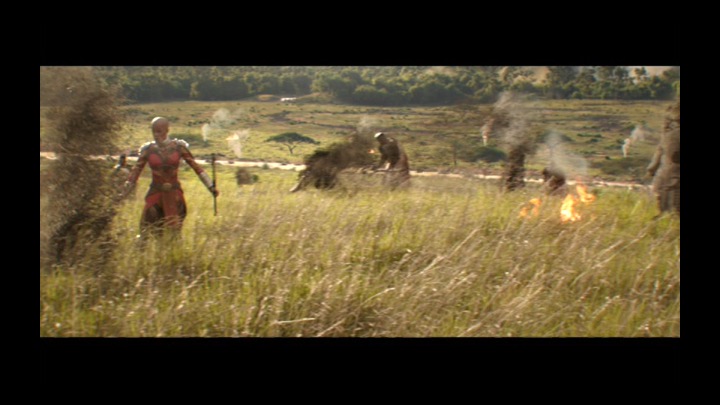
Black Panther is the first top line hero to die, and he does so quickly off frame.

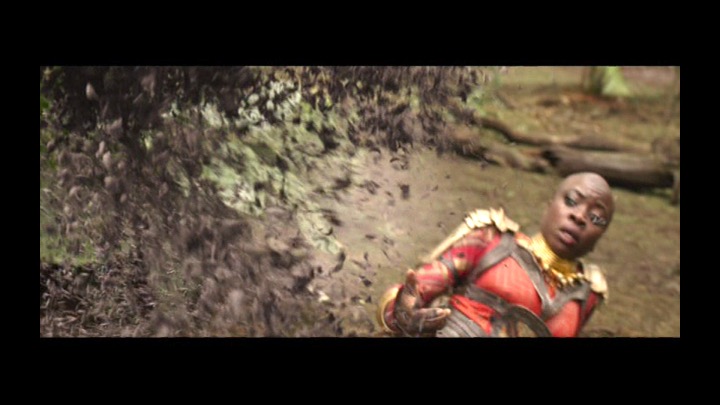
He’s followed by teenage Groot who’s slower fading gives Rocket time to react.

Scarlet Witch, Falcon, Mantis, and Drax lead up to more prominent Avengers like Star Lord and Doctor Strange.
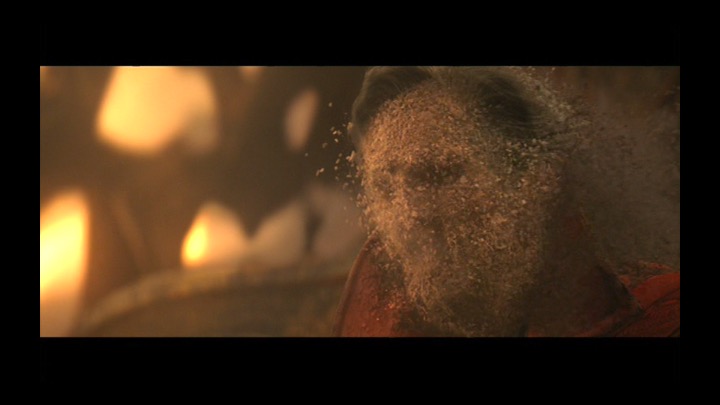
But the final dusting is the most painful. Figured as the death of a son before his father, Peter Parker protests his demise and embraces Tony Stark even as he evaporates: “I don’t want to go, please.”
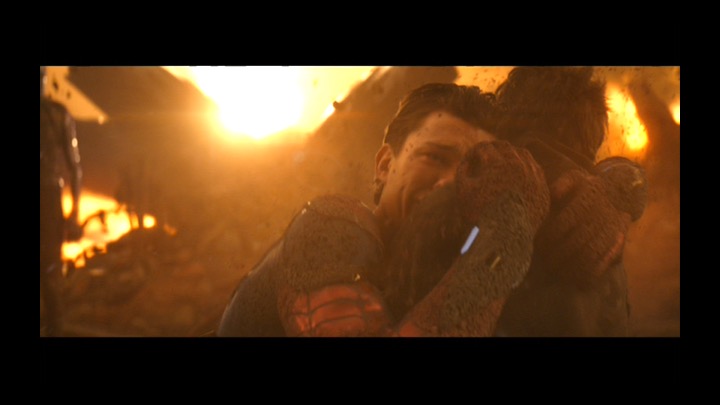
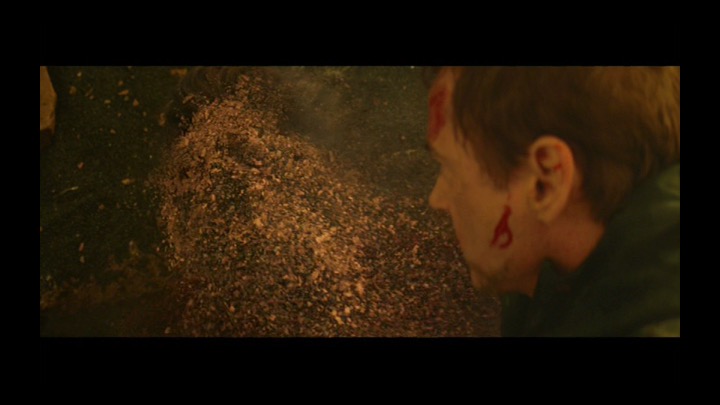
The sequence revels in the violation of innocence, suffering, and recognition of loss, melodrama’s trademark emotional cocktail. The action film and the tear jerker are close cousins.
But, as in any serial, even as the heroes die, we know that they will revive to fight another day. Peter Parker’s death, for instance, is bracketed by Marvel’s well publicized plans for another Spiderman film to be released this summer. Cliffhangers benefit from a kind of dual apprehension: knowing that this isn’t really the end allows us to bask in the depiction of that end.
This turns out to be a great lesson in cinema viewing and making: audiences are always aware that what they are watching is more-or-less nonsense, but that doesn’t stop us from investing and living in the moment. Great films can capture us in the spectacular present. Like a serial from the 1940s, Marvel has managed to extend that moment between movies. Disney and Marvel have dug into the tried and true markets for games and toys and they’ve fed a broad fan culture devoted to the constant and continual interaction with the story.
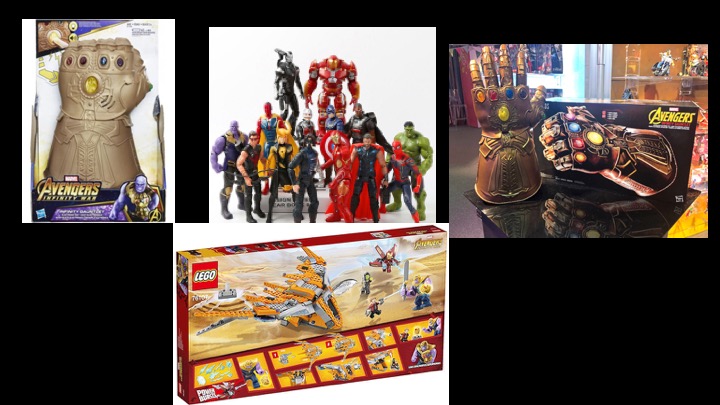
Trailers, interviews, toy releases, and publicity images become fodder for speculation, conjecture, and debate. Marvel plays a good game. The studio famously plants misleading and digitally altered images in film trailers to feed the conversation. Fan sites compare the Infinity War trailer and film to reveal the removal of stones from Thanos’ gauntlet and the appearance of the Hulk who is mostly absent from the film.
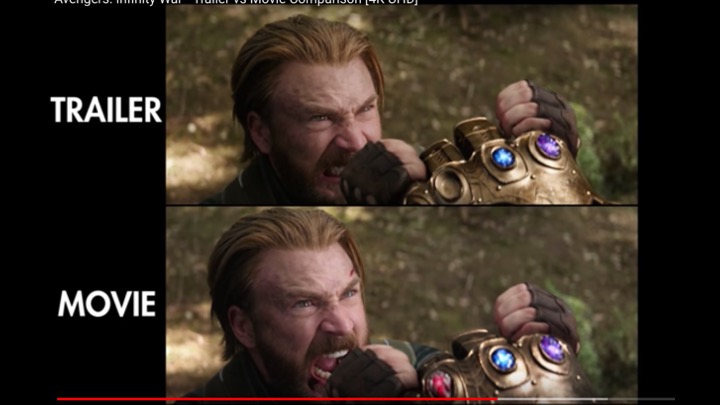
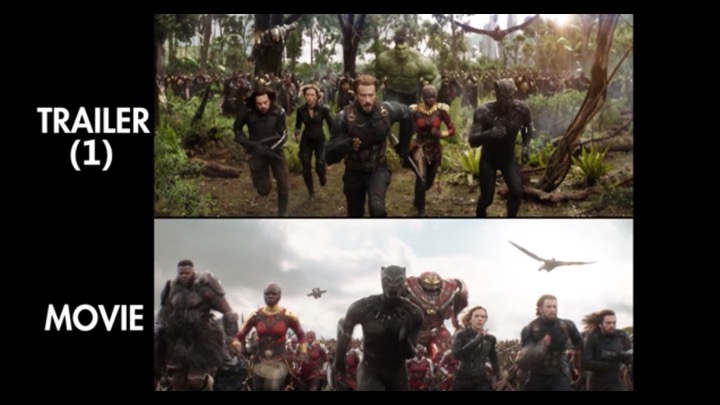
Each successive Endgame trailer has been immediately subjected to frame-by-frame scrutiny, here the 3D trailer reveals figures in an explosion not visible in the 2D trailer.
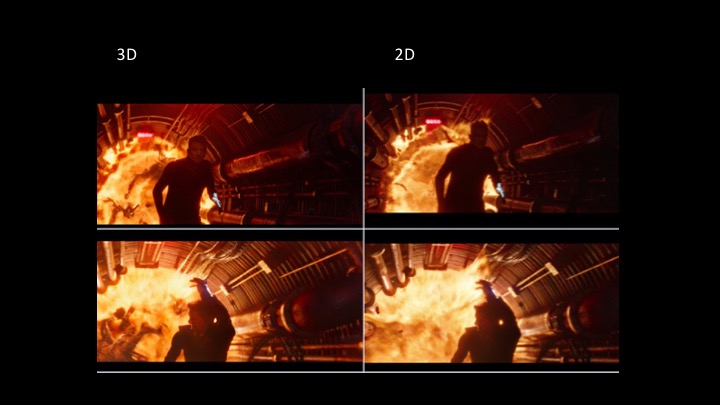
Advertisements for toys are analyzed to predict story events. Fan theories of how Thanos will be ultimately defeated have spawned memes involving Ant Man shrinking down and attacking the villain from behind. Popular film fans are exhibiting the obsessive behavior we expect from CFILM students and their professors! At the same time, leaks about stars who are leaving the franchise have prepared us for strong emotions. Iron Man, Thor, and Captain America are bound for heroic sacrifice. We will cry!
So these are some of the things we are thinking about, and some of the lessons we are learning on the eve of Endgame. But high-minded thoughts about popular art and film are one thing, actual PREDICTIONS about what will happen are another. As a test of the Wesleyan students’ spontaneous genius, I put the question of what will happen to my class. Here are some of their theories.
- Ant-Man will be key to defeating Thanos, unfortunately not through more popular means, but probably through something or other involving the quantum realm
- Tony Stark WON’T die, but will retire or something. Marvel is betting on people THINKING he will die and I think RDJ loves money too much to write himself out of these movies for good (even if he would make a great Uncle Ben surrogate for Spidey)
- Captain America is GONE. Hope that he gets sent back in time or something but he might just be dead
- Hawkeye might die? Or retire, I don’t think Jeremy Renner wants to keep doing these
- Literally everyone else comes back to life (Also thru time stone?), including Gamora and Loki who died pre-snap
- They destroy time stone and infinity gauntlet so they can never pull this trick on us again (until they do anyway)
- Groots gonna do something cool
- The cliffhanger resolves much like a serial would — we see everyone dissolving, dying, the horror, the horror. And then, we see someone we didn’t see originally — turns out, everyone dissolving wasn’t dead. Instead, snot-nosed Spider-Man pressed the wrong button in his Iron Man suit and accidentally teleported everyone to Toledo.
- Lest you think this kills all drama, never fear. Toledo happens to be the location of Thanos’ sun drenched villa, so everyone is still in danger. It’s up to the Avengers to embark on a quest to Toledo. And along the way, Iron Man will fall into Lake Erie and freeze to death.
- The Ant-Man/Thanos butt predictions are true, and Ant-Man dives head first into Thanos, bringing along Black Widow (shrinking her down to the size of a black widow first). They travel through Thanos, turning back time, and force Thanos to drop the gauntlet by controlling his muscles. So everyone lives happily ever after, and then in retirement, Black Widow is inspired by her trip through Thanos and becomes Ms. Frizzle, to teach children what she’s learned scientifically about the body. So, it turns out, Marvel’s 22 film saga has be the origin story of Magic School Bus.
- I’m expecting a time travel plot, I’m hoping for some time paradoxes, because those are fun and funny. If they’re doing time travel, they could have an avenger appear from the future and give hope/make jokes to the grieving Avengers (this is very Doctor Who, but everything should be more like Doctor Who, so there).
-
When trying to figure out what’s going to happen in the next film, it’s hard not to be informed by what my dad has come to call “metadata” or “metaspoilers”. Essentially, that consists of anything happening in the real world production of the film that spoils what happens in the fictional world of the film. For example, if Aaron Taylor-Johnson was spotted on set or was on the official cast list, it would spoil the fact that Quicksilver is probably in the film in some way. It could be a flashback scene, but all of a sudden there’s a small clue as to what might occur in the film. This information can appear even when not sought out, as oftentimes it comes to me via my Twitter stream, without me searching for Avengers news in any way. Another example is the much-discussed end of Robert Downey, Jr.’s and Chris Evans’ contracts. Something has to happen to them, since they’re not in any more movies. Today’s film watching era will be defined by this, as nothing like this has ever been available or even desired in the past. There was obviously speculation like this in the serial era, but it was completely uninformed.
-
I don’t see a path to a conclusion in Endgame without some sort of otherworldly powers. What that eliminates is a massive fight with Thanos and simply shattering the gauntlet or the stones.
- I’ve seen a set photo that is a recreation of the Battle of NY from Avengers, and so that implies some sort of Time Travel. Ant-Man and the Wasp’s placement in the MCU timeline points to the importance of the Quantum Realm. To me, what makes the most sense is that they use the Quantum Realm to travel back and fight Thanos in key moments before “the snap” even happened.
- I think that all the dead come back, excepting maybe Loki, but the cost is Steve Rogers life. He’ll die either at Thanos’s hand or as a tradeoff for the lives that were lost.
- Tony retires at the end of the film; I don’t think he dies.
- I think Nebula has a massive role to play, judging by her character arc thus far. She likely follows her comic storyline and delivers the finishing blow to Thanos. The rest of our heroes live, including Thor and Hulk, who go on to be in future MCU films.
-
I’m curious about whether this culture of speculation and looking for every little production detail will ever disappear, though it likely will not. Game of Thrones has done an exemplary job at keeping secrets secret, and there is almost no “metadata” to be found. Then again, Game of Thrones may be the last weekly show of its scale before there is a complete shift to streaming and entire seasons being released at once.
- I find character deaths are usually a less interesting story route, so I’m hoping a bunch of them live, but choose to move on.
- Thanos will die. I think he’s pretty much beyond redemption.

